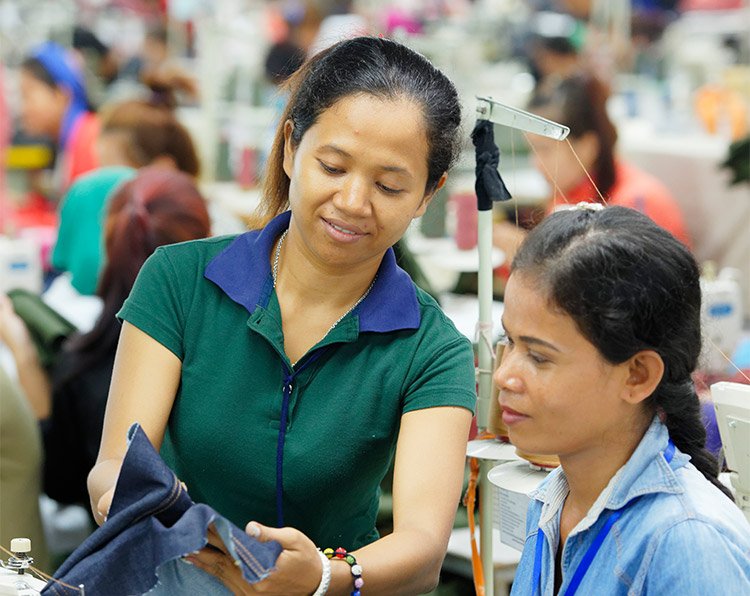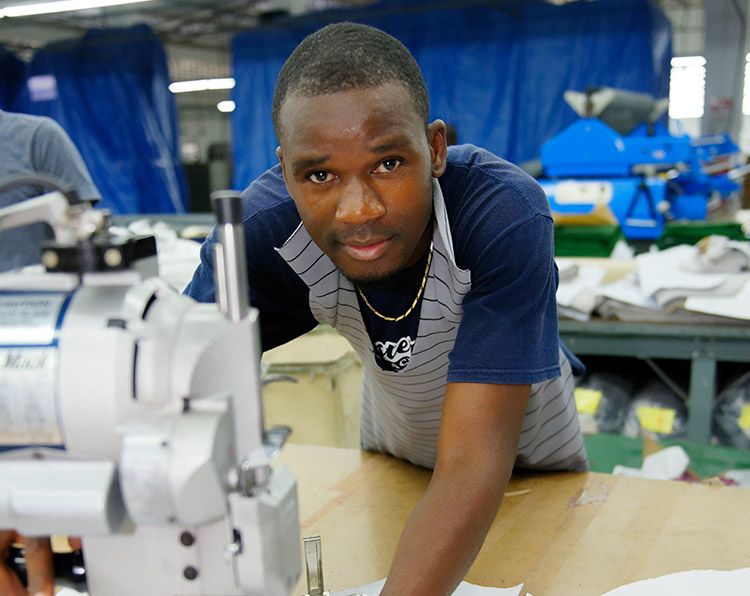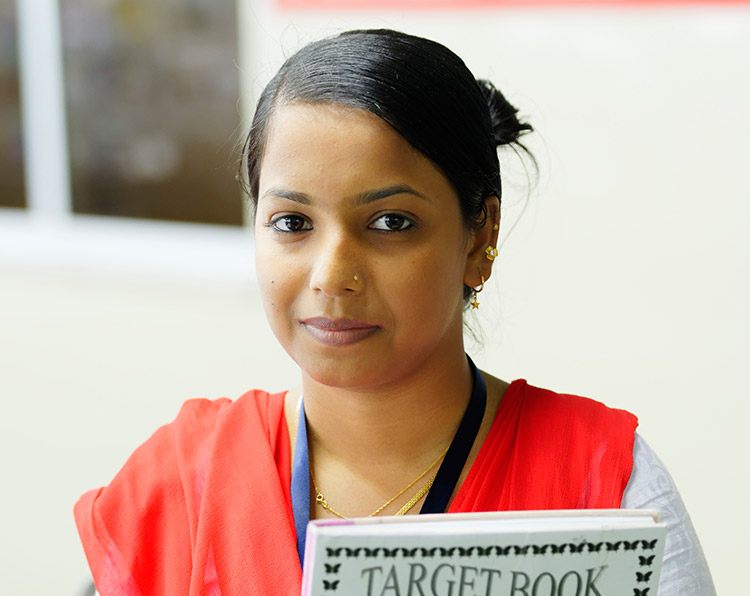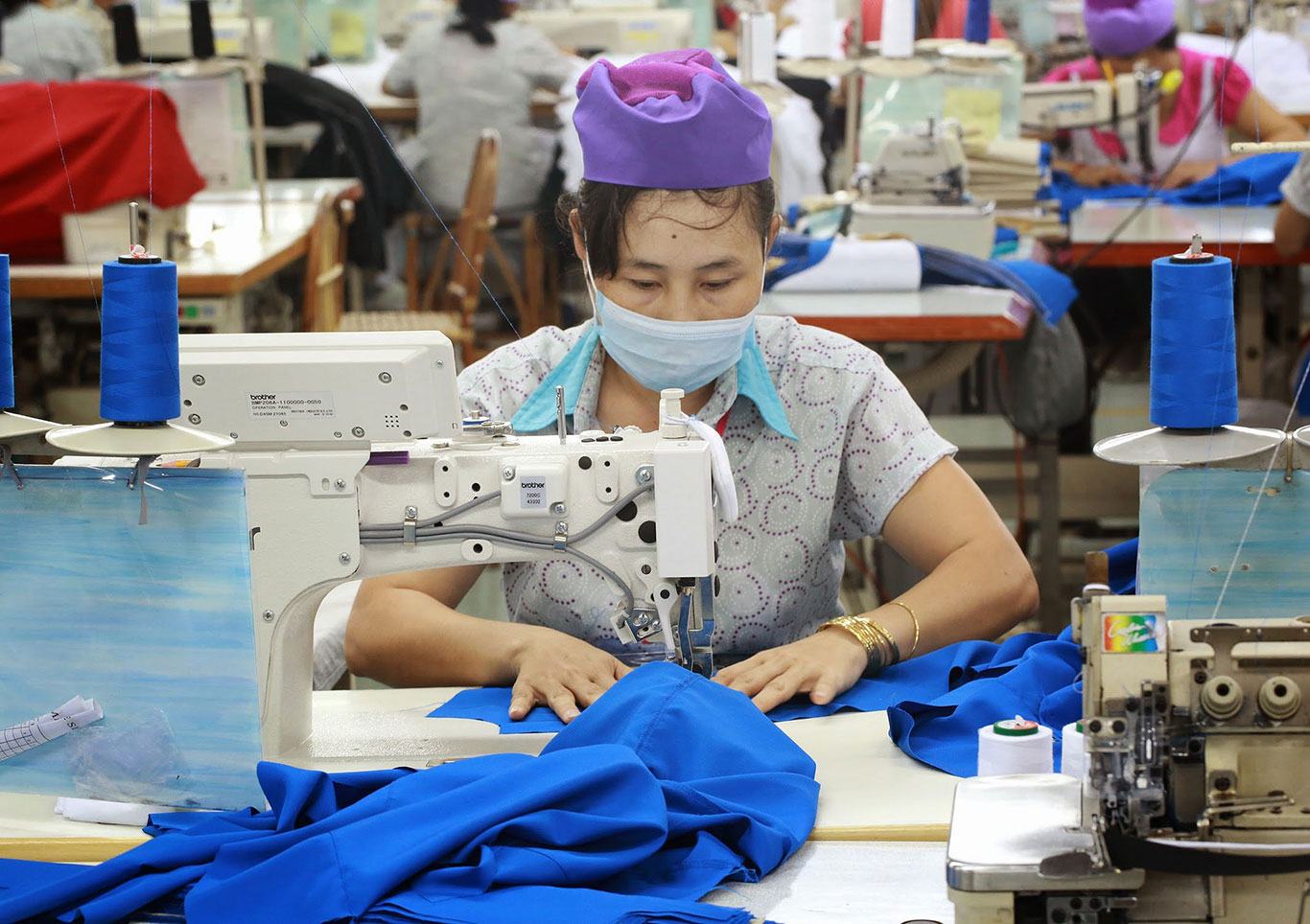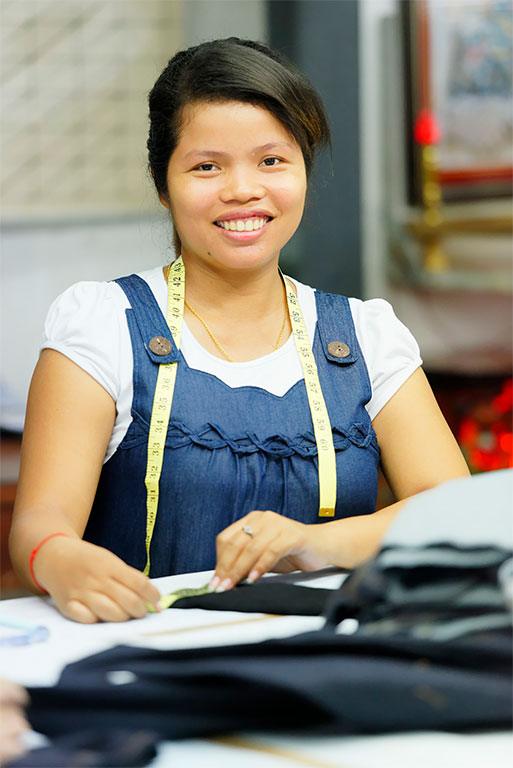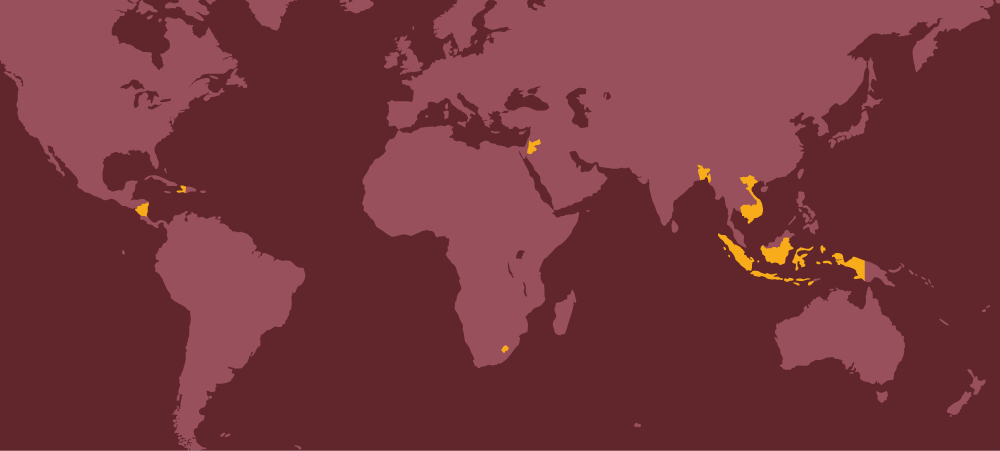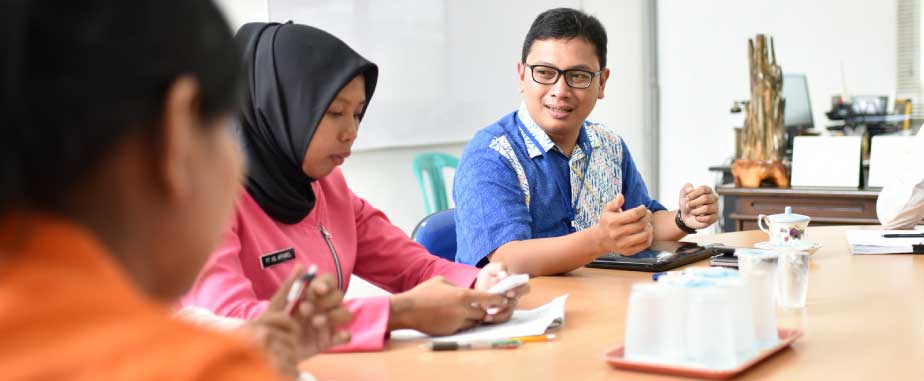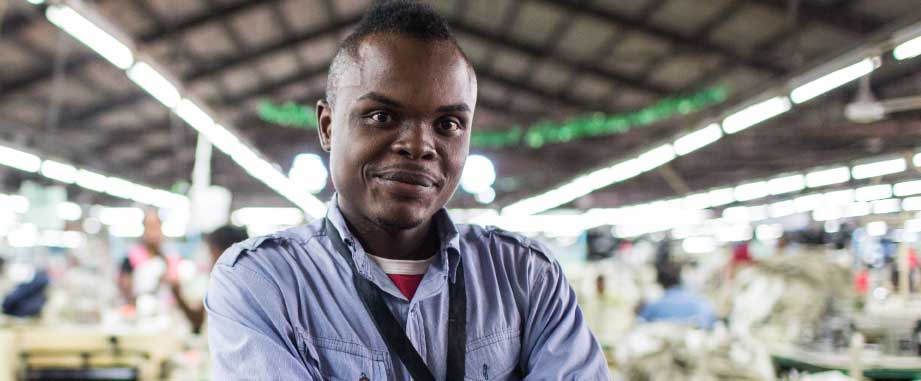Building empathy in Indonesia
Sudarmi works as a Chief Supervisor in the Sewing Department at a garment factory in Bogor, West Java. Her subordinates include four supervisors and hundreds of sewing operators. She admits that working in a garment factory has its challenges, including interpersonal relationships.
“I didn’t know how to communicate effectively with my subordinates, let alone inspire them. I sometimes became very aggressive and upset when I face problems at work,” Sudarmi said.
She also acknowledges the burden of her workload, exasperated by physical and mental weariness and demands to meet buyer targets. All that considered, she decided to register for Better Work Indonesia’s Supervisory Skill Training.
“Through the training, I feel like I had a certain enlightenment. I came to an awareness about the importance of communication in achieving success. The top management, junior managers, supervisors, and sewing operators are not machines. We carry out more than just our jobs, but we also interact with one another,” Sudarmi later said.
Upon the completion of the training, Sudarmi gathered all the supervisors and discussed possible methods of improvement to work performance and productivity.
Upon the completion of the training, Sudarmi gathered all the supervisors and discusses possible methods of improvement to work performance and productivity.
“I used to be less sensitive to the problems they encounter. Through more open communication, I realised that some sewing operators have weaknesses in their sewing skills, which may have led them to feel frustrated. I conducted various discussions with my fellow supervisors, and we decided to organize a training on sewing skills to enhance the skills of the operators,” Sudarmi explained.
Sudarmi’s proposal received a positive response from the operators working under her. She and other fellow workers believe that skill enhancement will boost their self-confidence in accomplishing their tasks and the challenges in their work productivity will now be gradually overcome.
Dassou Arsene also took the training in Indonesia. “Thanks to this training, I can now say that I am a professional. I learned how to communicate in the workplace; to listen to people. All the things I discovered in the training help me both at home and work”, said Dassou.
The factory managers have also noticed changes in supervisors’ behaviour, in and outside of work. “Changes also happened in the more personal front. Many participants described applying their Supervisory Skills Training knowledge to their family situation and have seen significant improvements. Family relationships are improving and kids feel more appreciated”, said one factory manager.


